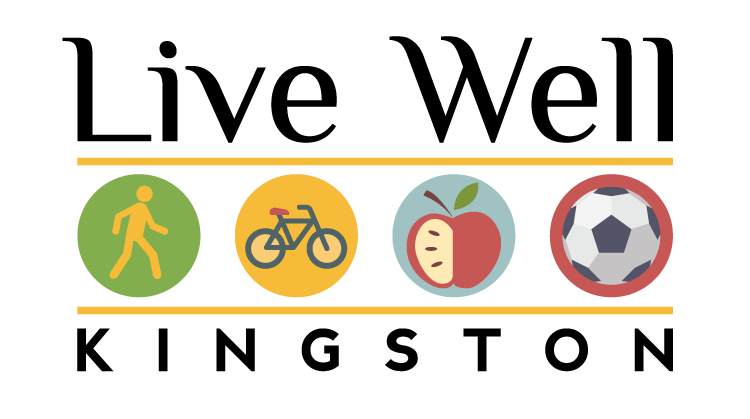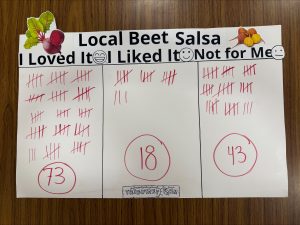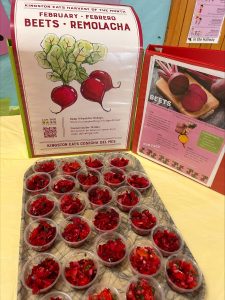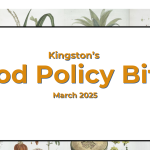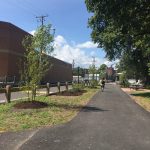Farm to School Programs:
A Win-Win for Students, Farmers, and the Whole Community
In recent years, Farm to School programs have gained momentum as a way to promote healthy eating, support local farmers, and enhance agricultural education. These programs connect schools with local farms to provide fresh, nutritious foods for school meals while integrating agriculture into the curriculum through school gardens and classroom education. Kingston City School District (KCSD) has been dabbling in farm to school activities for a few years and is starting to take a deeper dive. Recently, a farm to school working group was formed through the KCSD wellness committee. The benefits of farm to school programs are extensive, positively impacting students, farmers, and communities alike.
-
Supporting the Local Economy & Environment
KCSD has partnered with Rondout Valley Growers Association (RVGA) to procure hyperlocal produce grown right here in the Hudson Valley as well as other New York State grown products. By purchasing food from local and regional farmers, schools contribute to the economic sustainability of their communities. This direct support helps small and mid-sized farmers thrive, keeping agricultural traditions alive and reducing dependency on large-scale, industrial food systems. It also strengthens local economies by keeping food dollars within the community. Sourcing food locally reduces the carbon footprint associated with long-distance food transportation. This helps create a more resilient food system that benefits both people and the planet.
-
Agricultural and Nutrition Education
Farm to School programs incorporate hands-on learning opportunities, such as school gardens, farm visits, and cooking classes. KCSD is rich in community partnerships that provide agricultural experiences and nutrition education. Many schools at KCSD have vegetable gardens run by volunteers or have partnerships with outside organizations like Land to Learn that help integrate gardening into the curriculum. Children learn about nutrition during physical education class through SNAP-Ed where nutrition educators come right into the classroom to do engaging hands on lessons. The Kingston YMCA Farm Project also offers free field trips to one of the KCSD schools. These experiences help students understand where their food comes from and encourage them to explore foods they might not have access to otherwise. Furthermore, engaging students in this type of learning encourages curiosity and enhances subjects like science, math, and environmental studies.
-
Healthier Meals for Students
One of the most immediate benefits of Farm to School programs is the improvement in school meal quality. The Kingston Eats Harvest of the Month campaign is thriving in the district, with it being featured on the menu at least twice a month and procured locally when possible. By sourcing fresh, local produce, schools can offer students nutrient-dense meals with freshly picked produce. Of course, students need to actually eat the produce before they reap the nutritional benefits! The Creating Healthy Schools and Communities grant helps support KCSD by providing training and technical assistance to teachers and parents on how to engage students in trying new fruits and vegetables and how to hold taste tests. Engaging students is the key to success; when more students participate in the free lunch program and choose the local items, more of the school meal budget can be put towards buying local in the future!
-
Stronger School and Community Connections
Farm to School initiatives foster relationships between schools, students, parents, and local farmers. Kingston is rich in both its agriculture and its community based organizations. These programs encourage community involvement through farmers’ markets, and volunteer opportunities in school gardens and harvest celebrations like JFK’s annual “Spinach Fest.” Such engagement strengthens the ties between urban and rural areas, creating a sense of shared responsibility for healthy food access.
Creating a Healthier Future for All
Farm to School programs are a powerful way to improve student health, support local agriculture, and strengthen community connections. By embracing these initiatives, schools can cultivate a new generation of informed eaters while fostering sustainable food systems. Investing in Farm to School programs can be a step toward creating a healthier, more resilient future for all.
For more information, reach out to Ninette Warner, at nw293@cornell.edu.
